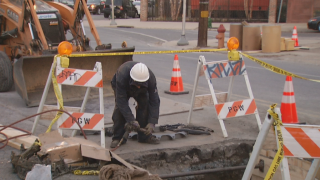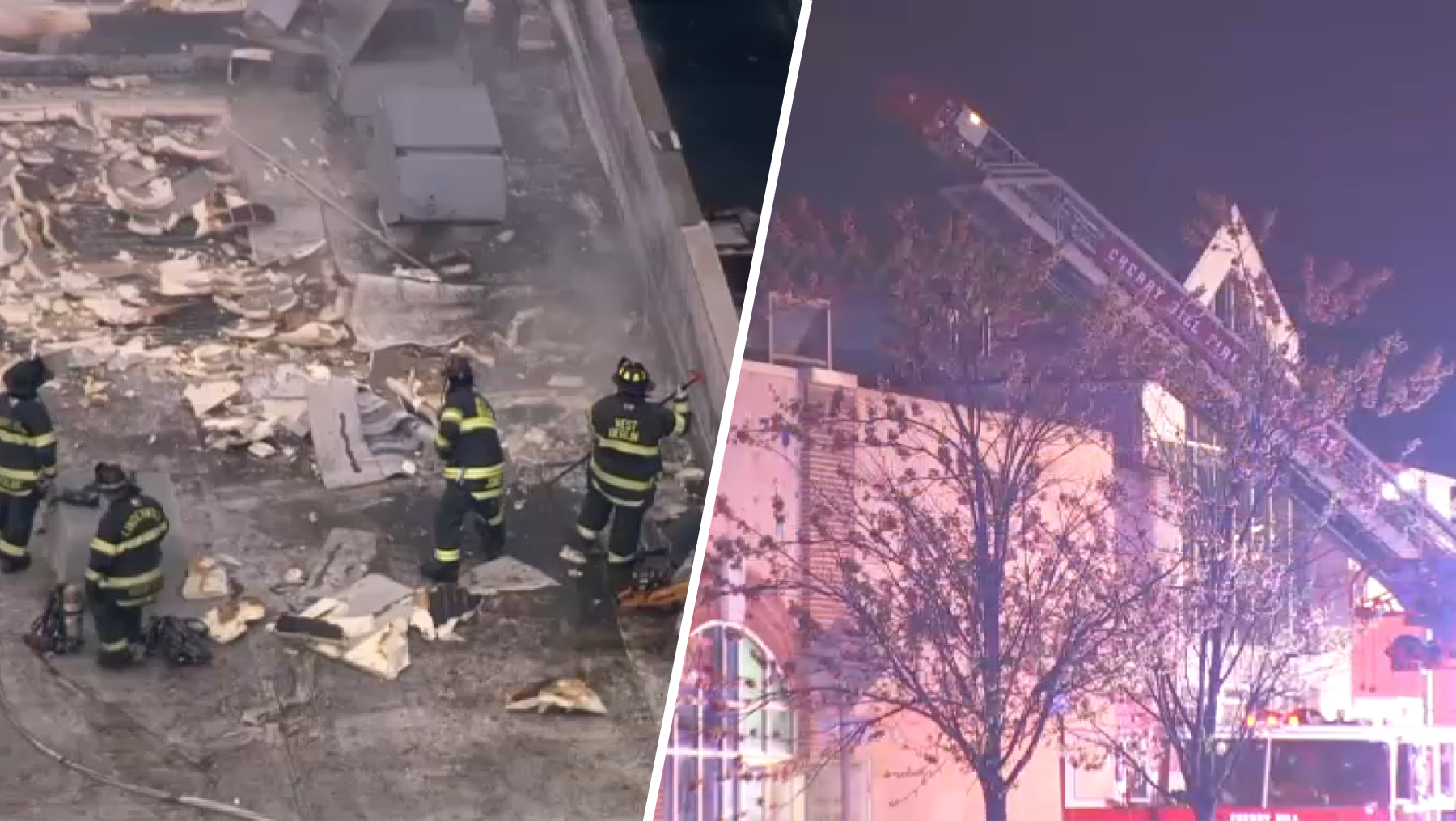
Philadelphia Gas Works announced a plan to replace decades-old pipes buried across the city to stop harmful methane gas from bleeding into the air.
PGW, the nation's largest municipally-owned gas utility, plans to cut methane emissions 80% by 2050 by modernizing infrastructure and implementing new technology, according to a news release. Methane is a powerful greenhouse gas that contributes to global warming at a rate more than 80 times that of carbon dioxide.
The Intergovernmental Panel on Climate Change and the City of Philadelphia have committed to reaching carbon neutrality by 2050 to keep warming below 1.5 degrees centigrade.
This will require PGW to offset their remaining emissions through planting trees or other measures, Rob Altenburg, senior director of energy and climate at PennFuture, said. PennFuture is a nonprofit focused on leading the the transition to a clean energy economy across Pennsylvania.
Get Philly local news, weather forecasts, sports and entertainment stories to your inbox. Sign up for NBC Philadelphia newsletters.
"Eighty percent is certainly better than nothing, but that remaining 20% of emissions is going to fall on somebody else to get rid of," Altenburg said.
PGW's infrastructure is currently responsible for 72% of its methane emissions, according to the news release. The company plans to replace 30 miles of natural gas mains with new, modern pipes, bringing emissions along the new mains to near zero.
The Methane Reduction Program will also include accelerating the company's leak reduction program to track, monitor, repair and reduce the amount of methane leaks. Controlling leakage is necessary to achieving net zero admissions, Altenburg said.
Local
Breaking news and the stories that matter to your neighborhood.
Since Philadelphia is an old city, he predicts that there are currently a high number of leaks in the old, cast iron pipes.
The old distribution system, much of which is buried underground, could make it difficult to control the leaks, Altenburg said. It likely will require shutting down streets and tearing up sidewalks to perform the necessary updates.
A 2015 report by the Pennsylvania Public Utilities Commission found 7,600 total leaks across PGW's system with more than half being classified as hazardous. PGW has the highest percentage of at-risk pipe statewide, the report said.
Scientists have found that emissions are significantly higher in urban areas, such as Philadelphia, although there is little information available about the local effects of greenhouse gases, Clean Air Council Advocate Russell Zerbo said. He added that methane leakage is higher in the city than what is actually reported, citing a study from Drexel University.
Later this year, PGW will also introduce a pilot program at the Richmond Plant in Port Richmond to implement "no-bleed" technology, which stops the release of natural gas into the atmosphere by cycling it back into PGW's distribution system.
PGW will continue their energy efficiency program, EnergySense, which provides grants and rebates to customers who replace their heating equipment, offers educational opportunities about lowering energy consumption and incentivizes developers to use energy-efficient construction practices.
The company will also continue its Home Comfort Program which offers weatherproofing and energy efficiency services to many low-income customers.
Since 1990, PGW has reduced methane emissions by 48% by replacing natural gas mains and service lines. EnergySense and the Home Comfort Program have reduced carbon emissions by 929,400 metric tons of carbon dioxide equivalent, according to the news release.
“PGW is setting ambitious goals to become a greener company and further combat climate change,” PGW Director of Sustainability said in the press release. “Our infrastructure modernization program, equipment upgrades, and best practices will enable us to meet or surpass our methane reduction targets by 2050, while providing safe, clean, and affordable energy to our customers as well as supporting the City of Philadelphia’s 2050 carbon neutrality goals.”



